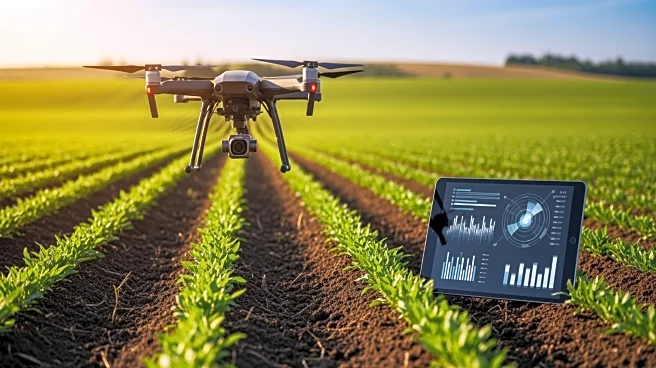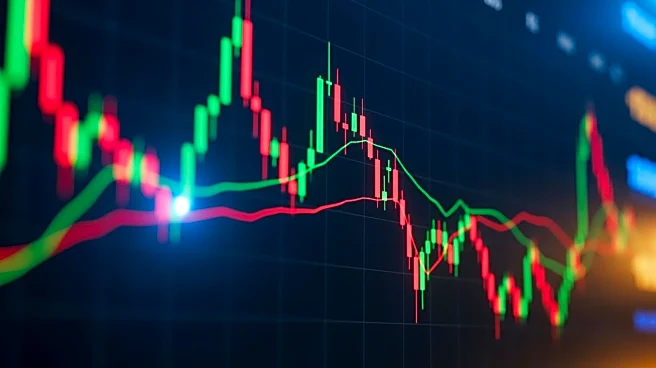What's Happening?
The United States sustainable agriculture market is projected to reach $9.8 billion by 2032, driven by advancements in precision agriculture and the adoption of IoT and AI-driven tools. These technologies
are enhancing food production while conserving natural resources and reducing environmental impact. The market includes practices such as organic farming, regenerative agriculture, and climate-smart methods. Companies like Deere & Company and Corteva Agriscience are leading innovations in this sector, supported by strong government backing through subsidies, tax incentives, and research grants. The focus is on restoring soil health and promoting ecosystem balance, which is crucial for long-term farm profitability.
Why It's Important?
The growth of the sustainable agriculture market is significant for the U.S. economy and environmental policy. It reflects a shift towards eco-friendly farming practices that can mitigate climate change impacts and ensure food security. The adoption of precision agriculture and AI tools can increase efficiency and reduce chemical use, benefiting both farmers and consumers. Government support through financial incentives encourages innovation and sustainability, potentially leading to a more resilient agricultural sector. This transition is crucial as consumer demand for organic and sustainably produced food continues to rise.
What's Next?
The U.S. farms are expected to increase the adoption of precision agriculture technologies by 35%, supported by federal conservation programs and private sector initiatives. This will likely boost efficiency and sustainability in farming practices. Additionally, investments in adaptive breeding and water stewardship technology are anticipated to continue, focusing on climate-resilient crops and market-driven crop diversification. These developments may lead to increased production of specialty crops like fruits, nuts, and vegetables, aligning with consumer preferences for diverse and sustainable food options.











